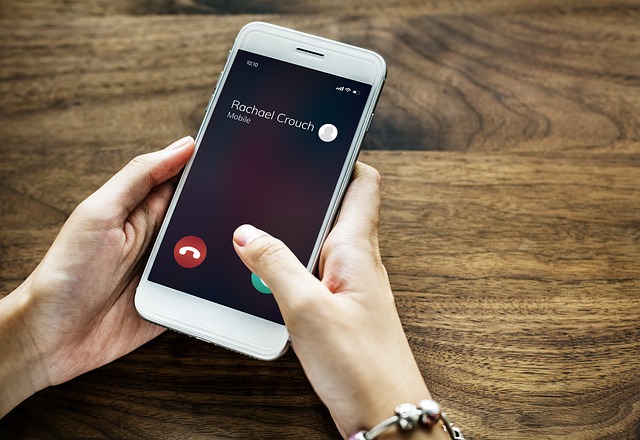
Do you check the caller ID when you receive a call?
Did you know that the caller ID can be falsified (spoofed)?
What is caller ID spoofing?
Scammers can spoof their caller ID. Caller ID spoofing is when a caller deliberately disguises their identity, falsifying the information transmitted to your caller ID.
Scammers typically spoof their caller ID as a local phone number, known as neighbor spoofing, or an 800 toll-free number to increase the likelihood that you’d answer the call.
Neighbor spoofing is when robot-callers use a number similar to yours. I get these calls myself but don’t answer them. They typically don’t leave a message. For instance, if your phone number is 206.310.5555, you might get a call that starts with the same area code 206 and prefix of 310. Such a phone number instantly makes you think it’s someone in your area calling, perhaps someone you know.
On cell phones, you can block these calls. However, you’d likely get more call with different phone numbers.
Why scammers use spoofing:
Spoofing is used to identify individuals who provide personal information which scammers can then exploit for fraud or even the sale of the personal information. The more information you give, the bigger target you become.
Tips to avoid spoofing spams:
- Don’t assume the caller ID is correct for any call you receive.
- Don’t answer calls from unknown numbers. If you do pick up the call and don’t recognize the caller, hang up without giving any information.
- Don’t give any personal information such as name, social security, or address to anyone you don’t know. I’ve come across some pretty savvy callers who kind of coach you in giving them information. Sometimes, they call asking for a specific person by name, fake name. When you say that person is not there, they ask your name. Pretty casual but if you pay attention, it’s purposeful probing for private information.
- Don’t follow automated instructions such as pressing numbers or answering yes or no to questions. If you do, you become a bigger target for spamming.
- Don’t give personal account information to anyone who’s calling you. Given the fact the caller ID can be falsified (spoofed), you have no way of knowing for sure whether the call originated from the said source. Hang up and call the company if you need to check the status of your account. Use the company’s customer service phone number on your billing statement.
- Be alert. If you feel the caller is pressuring you for information, chances are it is spam.
A utility, phone, or TV satellite company typically doesn’t call to ask for the account number, credit/debit card number, or social security number. If they do, offer to call them back. Verify the phone number yourself and call the customer service.
Sometimes we are not alert enough. Someone calls claiming it’s your doctor’s office. They ask for your date of birth to verify your identity. Do you give them your date of birth? The person calling may be a nurse from your doctor’s office OR may be a scammer. Offer to call the doctor’s office back yourself.
Yes, it’s more work to call back, but you make sure the intended person receives the info you share.
It’s the same as getting a call from a stranger who asks about your kid’s whereabouts. You won’t give out that information if you don’t know the person yourself.
I also had a caller tell me that I called him and he wanted to know who I was. I hadn’t called. So be cautious in such situations and don’t give the unknown caller your name.
You can reduce the number of scam or telemarketing calls by registering your phones with the national Do not call registry (www.donotcall.gov).
Takeaway:
Your personal information is a critical component of your data security.
Since we conduct most of our business by phone or online these days, it’s prudent to be cautious.
Do not give out your personal information unless you are confident you are talking to the responsible party to take care of your business.
I hope you find this article helpful. Please don’t hesitate to share this post if you feel a colleague or a friend may benefit from this information.
Cheers!
Nahrin
Author: Nahrin Dowds
Nahrin helps B2B & Technology companies bring in more leads, and nurture and close more sales with value-packed content and copy. You’re welcome to contact Nahrin at +1.208.962.1992.
